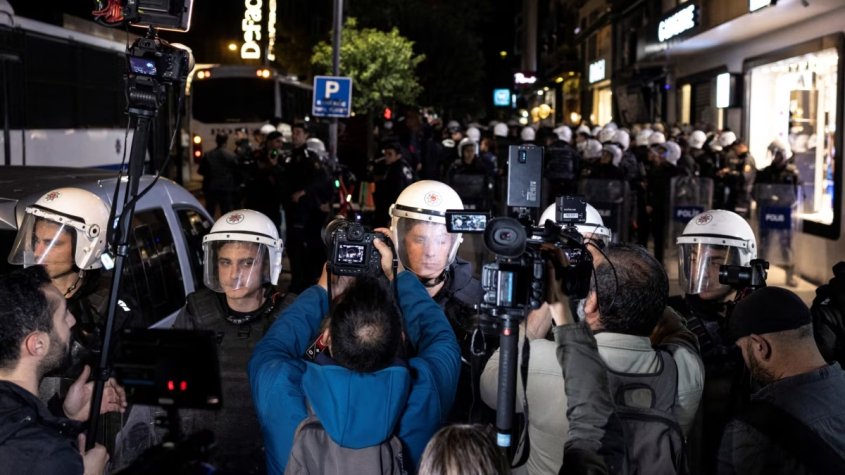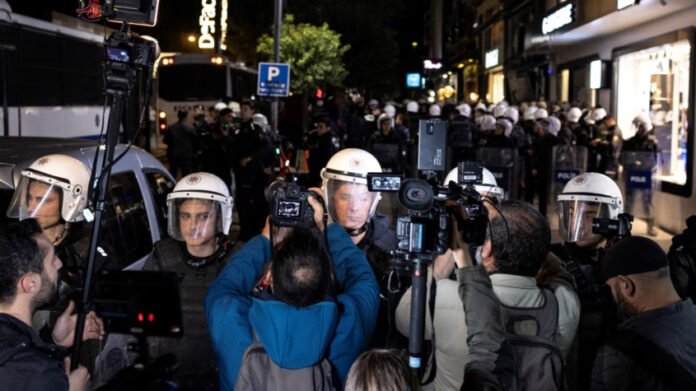Turkish authorities arrested 10 journalists and launched new prosecutions against dozens more in the second quarter of 2025, according to a new report by Expression Interrupted, a press freedom monitoring group.
According to the report, 103 journalists were tried in 73 separate cases during the period. Twenty-four of those trials were concluded: 10 resulted in convictions and 14 in acquittals. Nine journalists were sentenced to a combined total of 28 years, three months, four days in prison, while one was sentenced to pay a fine of 9,440 lira (about $228).
Prosecutors filed 12 new indictments against 26 journalists and launched 10 new investigations during the same period. A total of 21 were detained, including 10 who were later arrested, and one put under house arrest.
Terrorism-related charges dominate
The most common charges brought against journalists were “membership in a terrorist organization” under Article 314 of the Turkish Penal Code (TCK), cited in 20 cases; “insult” under Article 125 of the TCK, cited in 16 cases; and “dissemination of terrorist propaganda” under Article 7 of the Counterterrorism Law, cited in 11 cases.
Other charges include “insulting the president,” “denigrating state institutions,” “false accusations” and “spreading misleading information.”
33 journalists still jailed
During the quarter, 10 journalists were arrested while 11 were released — one after serving a prison sentence and the rest from pretrial detention. As of the end of June, 33 journalists remained behind bars.
At least five cases of violent police intervention, obstruction or threats affecting six journalists were also documented during this period.
RTÜK sanctions persist
In the second quarter of 2025, Turkey’s Radio and Television Supreme Council (RTÜK) fined media outlets critical of the government, including Halk TV, NOW, SZC TV and TELE 1, a total of 11.3 million lira (about $275,000).
Halk TV was also handed a 10-day broadcast ban. RTÜK further ordered journalist Fatih Altaylı’s YouTube channel to obtain a license, signaling that online broadcasts will also fall under its supervision.
Pro-opposition news channels in Turkey frequently face restrictions from RTÜK, whose board is appointed in proportion to seats in parliament and is dominated by the ruling Justice and Development Party (AKP).
Today, Turkey remains one of the world’s leading jailers of journalists, ranking 159th out of 180 countries in the 2025 World Press Freedom Index published by Reporters Without Borders (RSF).

